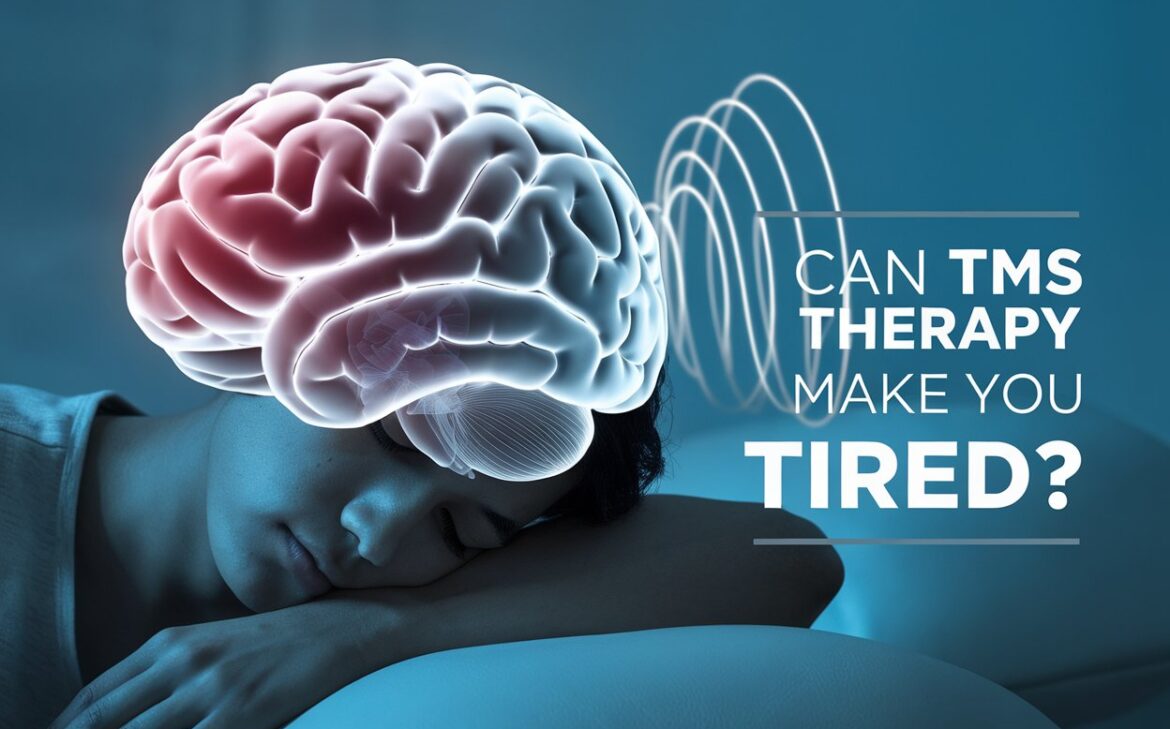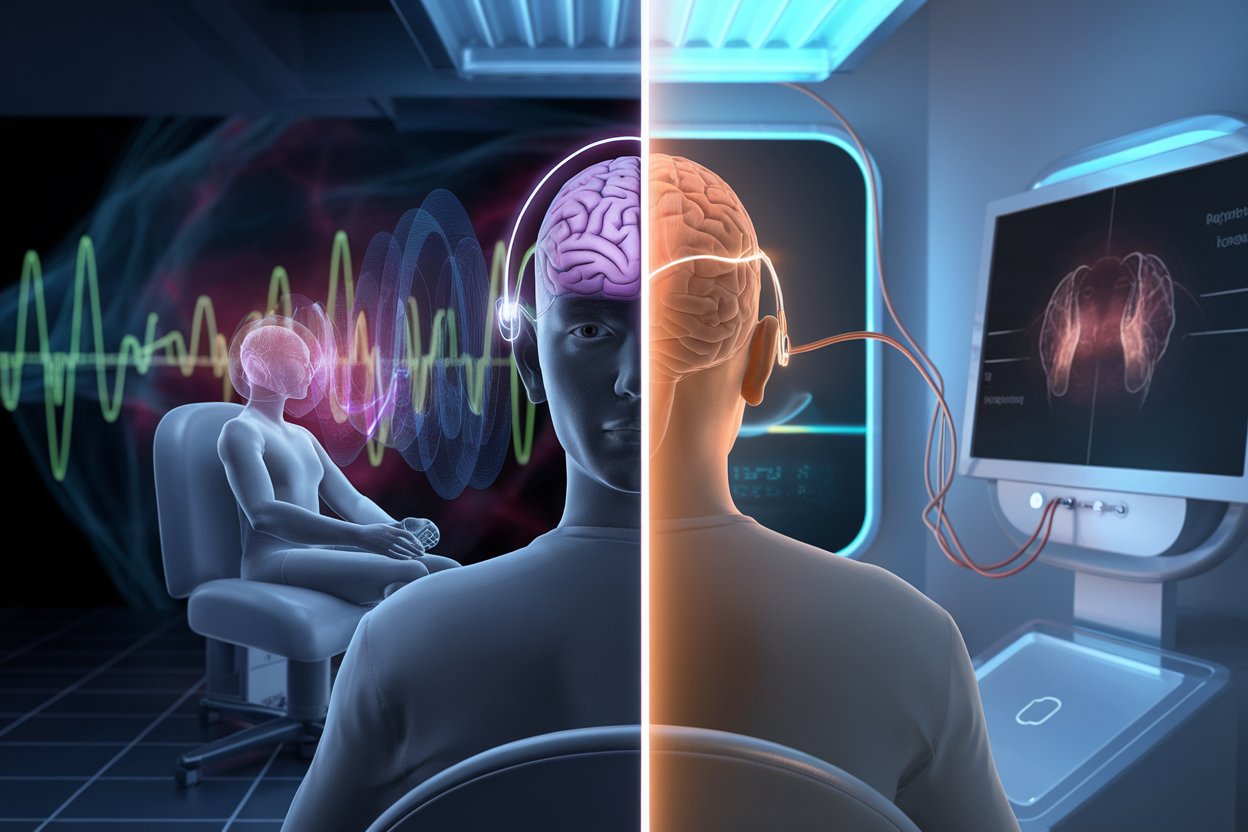Transcranial Magnetic Stimulation (TMS) therapy has gained popularity for treating depression and other mental health conditions, particularly for patients who haven’t found relief with traditional methods like medication or psychotherapy. But one question often arises: Can TMS therapy make you tired? The answer is yes, some patients may feel tired after TMS, but let’s explore why this happens, what it means for your treatment, and how you can manage this effect.
Understanding TMS Therapy
What Is TMS Therapy?
TMS therapy is a non-invasive treatment that uses magnetic fields to stimulate nerve cells in the brain, particularly areas that control mood. It’s typically used to treat major depressive disorder, especially in patients for whom antidepressant medications have not been effective. The treatment is administered over a series of sessions, where magnetic pulses are delivered to the brain via a coil placed on the scalp.
Can TMS Therapy Make You Tired?
Yes, TMS therapy can make you feel tired. This fatigue is sometimes called “mental fatigue” because it’s more about feeling mentally worn out rather than physically exhausted. Although not everyone experiences this side effect, for some people, feeling tired after TMS can be a common occurrence, especially in the initial sessions.
The good news? Feeling tired after TMS is often temporary and manageable. In many cases, this tiredness is similar to the way you might feel after a mental workout—your brain is actively working, and this effort can leave you feeling drained. This fatigue isn’t necessarily a negative; rather, it indicates that your brain is responding to the therapy.
Why Does TMS Therapy Make You Tired?
There are a few reasons why TMS therapy might leave you feeling tired:
- Brain Activity: TMS therapy stimulates parts of your brain that are often underactive in people with depression. Just like how your muscles get tired after exercise, stimulating brain activity can lead to a sense of mental fatigue.
- Increased Blood Flow: The magnetic pulses used in TMS increase blood flow and neuronal activity in targeted brain regions, which might leave you feeling mentally drained after a session.
- Adjustment Period: Many patients experience fatigue during the initial phase of their TMS treatment. As your brain adjusts to the stimulation, it’s normal to feel a bit tired, especially during the first few weeks.
Positive Aspects of Tiredness During TMS
While tiredness may not seem ideal, there are some positive aspects to it. Feeling tired could mean that your brain is actively engaging with the therapy, which is important for recovery. Much like after a good workout, a bit of fatigue may indicate that your body (or in this case, your brain) is working to grow and heal.
Moreover, many patients report that TMS also helps improve their sleep quality. By stimulating brain regions that regulate mood and sleep, some individuals find they sleep better after their sessions, which is beneficial if sleep disturbances have been part of their depression.
Other Side Effects of TMS Therapy
Besides tiredness, there are some other side effects that you may experience with TMS therapy, although they tend to be mild and temporary:
- Headaches: This is the most common side effect of TMS. The magnetic pulses can sometimes cause mild headaches or discomfort at the treatment site, but these are usually manageable with over-the-counter pain medication.
- Scalp Discomfort: Some patients may experience a tingling or tapping sensation on their scalp during the treatment, but this typically gets better after a few sessions.
- Lightheadedness: Occasionally, patients might feel lightheaded right after their treatment, but this usually resolves quickly.
Who Might Be More Prone to Feeling Tired?
Certain factors can make some people more likely to feel tired after TMS therapy:
- Frequency of Sessions: If you’re undergoing more frequent or longer sessions, you may feel more fatigued afterward.
- Baseline Fatigue: If you were already feeling fatigued before starting TMS due to depression or other health conditions, you might be more prone to experiencing tiredness during the treatment.
- Stress Levels: High stress can make the experience of TMS more exhausting. If your body is already in a heightened state of stress, even a small increase in brain activity can feel draining.
Tips for Managing Tiredness During TMS Therapy
If you’re wondering how to manage fatigue during TMS therapy, here are some practical tips that can help:
- Get Adequate Sleep: Make sure you are getting enough rest each night. A regular sleep schedule can help you feel more refreshed and better able to handle TMS sessions.
- Stay Hydrated: Dehydration can make you feel even more fatigued. Drinking plenty of water before and after your sessions can help combat tiredness.
- Listen to Your Body: If you’re feeling tired, take it easy. Resting after a TMS session can help your body adjust to the treatment.
- Avoid Caffeine Late in the Day: Caffeine might seem like a good fix for fatigue, but it can interfere with sleep quality if consumed later in the day.
- Practice Relaxation Techniques: Deep breathing, meditation, or light yoga can help you relax and manage any stress or fatigue you feel after treatment.
Does Tiredness Mean TMS Isn’t Working?
No, feeling tired after TMS therapy does not mean that the treatment isn’t working. In fact, it can be a sign that your brain is responding to the magnetic stimulation. Everyone’s experience with TMS is different—some people feel energized, others feel tired. What’s important is to discuss your side effects with your healthcare provider so they can help you adjust as needed.
If you’re experiencing fatigue, be sure to mention it to your doctor. They might adjust the intensity or duration of your sessions to help alleviate some of these feelings.
Final Thoughts: Can TMS Therapy Make You Tired?
To sum it up, can TMS therapy make you tired? Yes, it can. The tiredness that some people experience is a natural response to the brain’s increased activity during treatment. Think of it as a workout for your brain—sometimes, workouts leave us tired, but they also lead to progress.
If you experience tiredness, remember that it’s generally a short-term effect, and there are several strategies you can use to manage it. Always keep your healthcare provider informed about your side effects, as they can help ensure your treatment plan is as comfortable and effective as possible.
Ultimately, while tiredness can be an inconvenient side effect, it’s often a sign that your brain is doing the work needed to heal. And if it also helps you get better sleep, that’s a bonus worth embracing.
Start Your Journey to Better Mental Health
At American TMS Clinics, we specialize in effective, compassionate care tailored to your needs. Ready to explore how TMS therapy can improve your life? Contact us Today!





